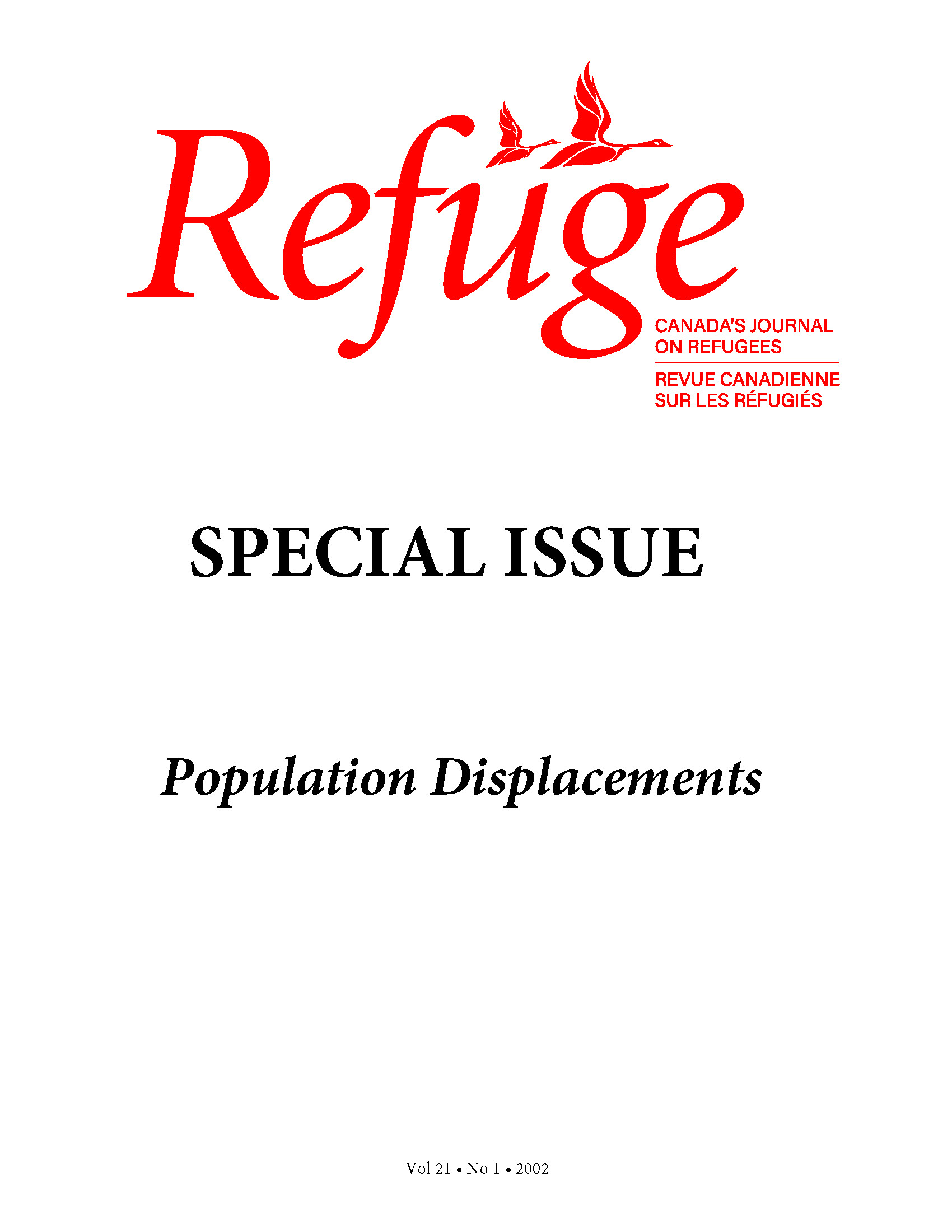Reducing Environmental Damage Caused by the Collection of Cooking Fuel by Refugees
DOI:
https://doi.org/10.25071/1920-7336.21280Keywords:
refugee camps, ecology, environmental impact, cooking technologies, fuelwood, genderAbstract
The collection of fuelwood by large numbers of internally displaced people and refugees for the purpose of providing energy for food preparation and cooking can cause environmental devastation and adversely affect the socio-economic balance with local populations. There is no simple solution. Reducing environmental impact, and thus easing societal tensions, requires addressing a complex set of issues including supply of and demand for natural resources, aid agency operations, willingness to utilize refugee knowledge and experience, the effects of forced displacement, poverty, and lack of land. The key to establishing sustainable solutions, whether fuel or non-fuel alternatives, requires being able to identify and understand the interaction between human needs and behaviour and the local environment. This paper explores the scope of the problem and offers case examples, describes efforts taken and alternatives available, presents outcomes of evaluations that have been performed, and outlines lessons learned to be used in future crises.
Metrics
Downloads
Published
How to Cite
Issue
Section
License
Copyright (c) 2002 Maureen Lynch

This work is licensed under a Creative Commons Attribution-NonCommercial 4.0 International License.
Refuge authors retain the copyright over their work, and license it to the general public under the Creative Commons Attribution-Non Commercial License International (CC BY-NC 4.0). This license allows for non-commercial use, reproduction and adaption of the material in any medium or format, with proper attribution. For general information on Creative Commons licences, visit the Creative Commons site. For the CC BY-NC 4.0 license, review the human readable summary.







